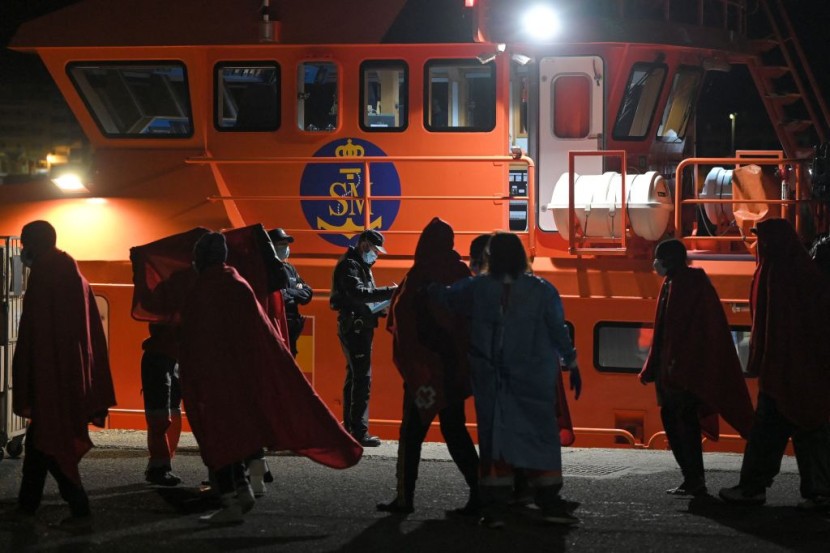
Spanish authorities have begun investigating why as many as 60 people stranded on an inflatable dinghy bound for the Canary Islands had to wait for more than 12 hours to be rescued.
The operation resulted in the deaths of 35 people, including a child.
Passengers on the boat appealed for help after getting difficulties off the coast of Western Sahara Tuesday afternoon (June 20). A Moroccan rescue vessel only appeared the following day and picked up 24 people.
The migration NGOs Walking Borders and Alarm Phone have accused Spanish and Moroccan authorities of failing to act quickly enough.
"Having 60 people...waiting for rescue for more than 12 hours on an unstable inflatable boat that could sink at any moment is torture," said Helena Maleno, who leads Walking Borders, emphasizing there were six women and an infant aboard.
Spain's public ombudsman has also picked up the case after audio emerged Friday (June 23) confirming the Spanish coast guard had left the rescue operation to its Moroccan counterparts.
In a statement, the official said it would be "seeking information about the coordinated measures taken with respect to the actions carried out during the rescue operation."
The Spanish Maritime Safety and Rescue Society, also known as Salvamento Marítimo, issued a statement Friday, saying it had acted "in full compliance with the rules and procedures on international coordination established in regard to maritime search and rescue."
The service added that while the boat had been located in a search-and-rescue operation shared between Spain and Morocco, they had decided to hand the rescue operation over to Morocco as the boat was 88 miles (141.62km) from the Canary Islands and is nearer (40mi/64.37km) to the Western Saharan coastal town of Laayoune.
In addition, the Salvamento Marítimo said its rescue boat Guardamar Calíope could not help the rescue as it had just saved 63 other people, some of which required urgent treatment ashore.
"As soon as the Moroccan search-and-rescue authorities took charge of coordination, Salvamento Marítimo offered its full collaboration and dispatched a helicopter that was requested," the service said.
Survivors of Libyan Migrant Boat Said Greek Authorities Should Have Let Them Be
Meanwhile, a survivor of the overloaded Libyan fishing trawler that sank off the coast of Greece told CNN that the boat should not have sunk if they had not been assisted in the first place.
The survivor vividly remembered the moment the boat sank off the coast of Pylos on June 14 with most of the 750 Pakistani, Syrian, Egyptian, and Palestinian refugees and migrants onboard. "I can still hear the voice of a woman calling out for help," the survivor said. "You'd swim and move floating bodies out of your way."
Other testimonies were taken from some of the 104 survivors of the ill-fated vessel to visualize the final moments of the boat, according to CNN.
The survivors also questioned the Hellenic Coast Guard's version of events, suggesting more lives could have been saved, but the coast guard repeatedly denied attempting to tow the vessel.
"When the boat capsized, we were not even next to (the) boat. How could we be towing it?" insisted Hellenic Coast Guard spokesman Nikos Alexiou.
The Hellenic Coast Guard has declined to answer CNN's specific requests for a response to the survivor testimonies.
Meanwhile, rights groups allege the tragedy was both further evidence and a result of a new pattern in illegal pushbacks of migrant boats to other nations' waters with deadly consequences.
UNHCR Special Envoy for the Central Mediterranean Vincent Cochetel said the migrant boat was "overcrowded" and "unseaworthy," which meant authorities should have been rescuing the people aboard the vessel.
"There was a responsibility for the Greek authorities to coordinate a rescue to bring those people safely to land," he added.
Related Article: Dozens Feared Drowned After Migrant Boat Sinks in Atlantic
© 2026 HNGN, All rights reserved. Do not reproduce without permission.








